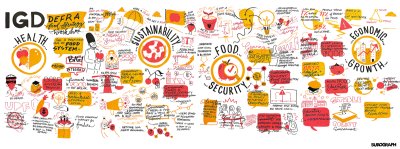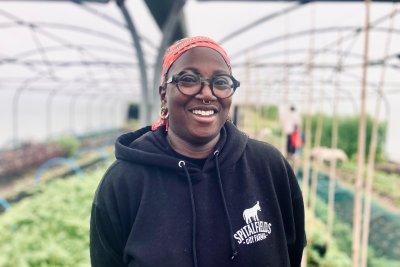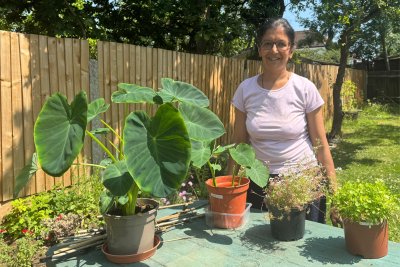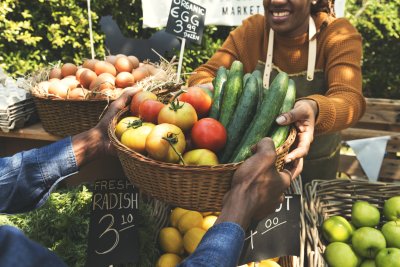 A person buying fresh local vegetable from farm at market. Credit: Rawpixel.com / Shutterstock
A person buying fresh local vegetable from farm at market. Credit: Rawpixel.com / Shutterstock
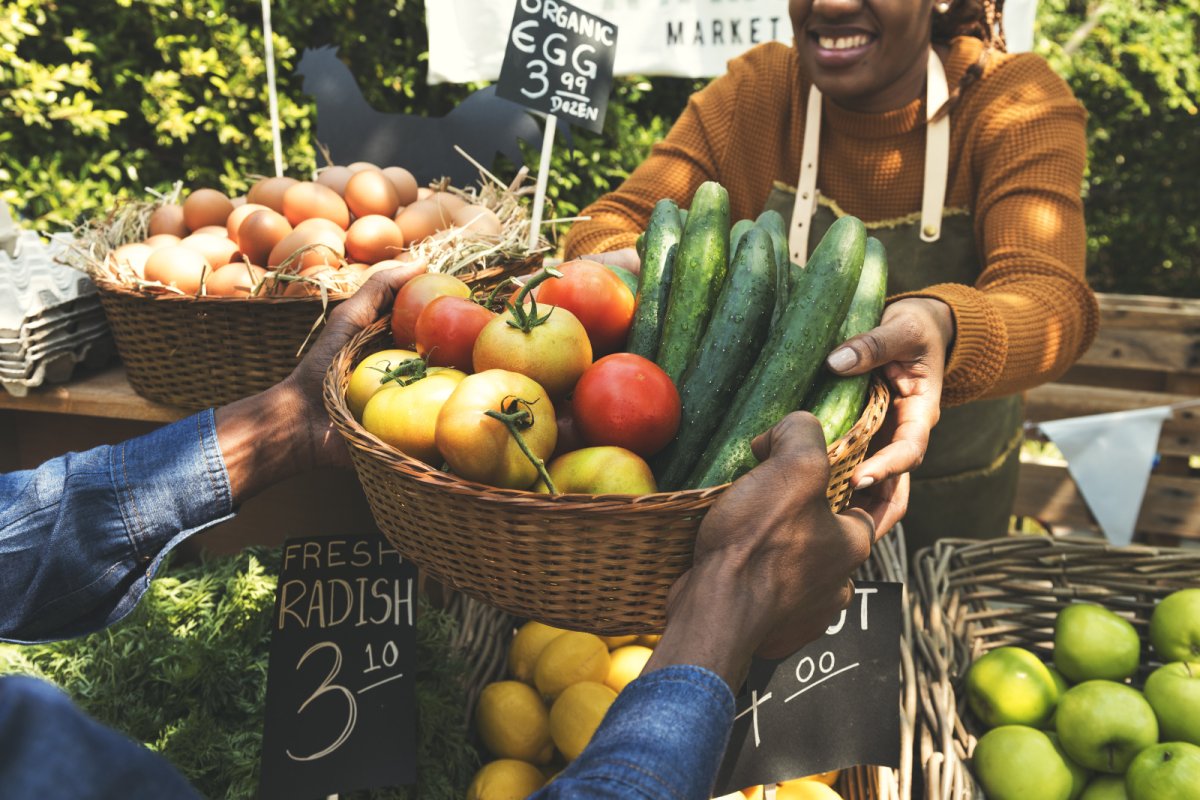
Local food benefits go far beyond food miles
Sustain's Local Food Retail Coordinator, Rachel Jones, responds to statements made on Channel 4 News about the sustainability of local food and explores the wide-reaching reasons to shop local.
A recent Channel 4 News piece suggested that local food is not necessarily more sustainable because transport emissions make up a low percentage of the total carbon impact of food items.
It’s true that local food isn’t by default more sustainable. But when done right, local food can deliver a big range of environmental, social and economic benefits that go far beyond food miles.
Before we dive into the detail; let’s get clear. What do we mean by ‘local food’?
Local food means different things to different people. For us at Sustain, truly local food involves:
Short supply chains. These involve few intermediaries and will typically be regional in nature but vary according to food type and location.
Independent retail. Food that is sold through a variety of outlets including online direct-to-consumer box schemes, markets, independent shops, convenience stores as well as larger retailers.
Local benefits. To be truly local, food must deliver benefits to the local producers, environments, communities, economies and eaters that it passes through.
So how does local food deliver on sustainability; in the fuller sense of the word? Here are just a few ways:
Climate and nature friendly production
Food’s biggest environmental impact comes from how it is produced on-farm. And we find that producers currently supplying the local market are much more likely to be smaller-scale, less intensive, more biologically-diverse, organic and focus on seasonal produce that can be grown without energy inputs – all factors which shift us towards the net zero, nature-positive farming industry we desperately need to see.
Of course there are UK farms, near to where people live, producing in incredibly destructive ways. But being closer to home we have more opportunity to influence them towards more sustainable practices than we do farms on the other side of the world, through government and local authority policy, Sustainable Food Partnerships and what we demand as eaters. And Sustain’s Sustainable Farming and Food for the Planet campaigns exist to do just that.
Fairer pay for producers
Farmers are under strain financially. Shorter supply chains mean fewer middlemen taking a cut and a higher share of profits for farmers. Sustain’s Unpicking Food Prices report revealed that alternative food systems triple the share of profits that famers can receive for everyday food items, when compared to the supermarket system. What’s more, food sold locally is much more likely to be sold through independent retail, spreading the economic benefit into the community.
Food security
The UK currently imports half of our vegetables and the majority of our fruit. Studies show that this overreliance on imports makes us vulnerable to increasing empty supermarket shelves due to disruption from climate change and extreme weather. And while local food production is, of course, not immune to the impacts of climate change, a diversity of supply brings resilience and shorter supply chains leave less opportunity for disruption.
Community connection and cohesion
Local food systems build community. They create new relationships within local economies. They create a sense of identity in a place. They enable us to meet the people who produce our food. Carrick Greengrocers in Northern Ireland has helped revive a local high street and Cardiff Farmers Markets have been described as ‘outdoor community centres’. In times where loneliness and mental health issues are on the rise, the value of this shouldn’t be underestimated.
All this said, it's worth noting the limits and challenges of local food. Not everything should, or even could, be sourced locally and we are big fans of Growing Communities Food Zones model. There’s also some way to go in optimising local food systems to maximise affordability and accessibility for all.
When done right, local food systems can provide a route to flourishing local high streets, connected communities, fair and sustainable economies, while providing food with flavour and freshness that’s hard to beat. And there’s living, breathing proof of this all around the country: everywhere from Sitopia Farm in London, to Organic North in Manchester, to Bowhouse in Fife, to Good Food Loop in Devon. And too many others to mention.
Maximising the benefits of local food
We believe there is huge untapped potential in local food systems, so Sustain, together with a coalition of partners, are developing a Local Food Growth Plan to increase the size of the local food sector by 10x by 2030, the first iteration of which will go live in April.
In the meantime, check out Sustain’s report The Case for Local Food for more information and examples.
Local Food Plan: Creating a plan to grow the local food sector 10x by 2030.
Sustain
The Green House
244-254 Cambridge Heath Road
London E2 9DA
020 3559 6777
sustain@sustainweb.org
Sustain advocates food and agriculture policies and practices that enhance the health and welfare of people and animals, improve the working and living environment, promote equity and enrich society and culture.
© Sustain 2025
Registered charity (no. 1018643)
Data privacy & cookies
Icons by Icons8
